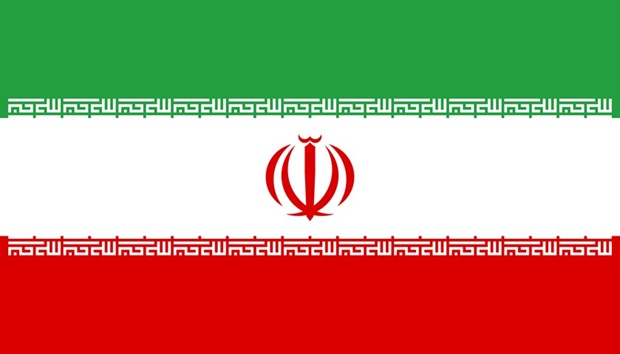Iran yesterday conducted multiple ballistic missile tests in what it said was a display of “deterrent power,” defying US sanctions imposed earlier this year aimed at disrupting its missile programme.
State media announced that short-, medium- and long-range precision guided missiles were fired from several sites to show the country’s “all-out readiness to confront threats” against its territorial integrity.
Pictures of the launches were broadcast and reports said the armaments used had ranges of 300km, 500km, 800km and 2,000km.
The US hit Iran with fresh sanctions on its missile programme in January, 24 hours after separate sanctions related to Tehran’s nuclear activities had been lifted under a landmark deal with world powers.
The latest tests, during an exercise named ‘The Power of Velayat’, a reference to the religious doctrine of the Islamic republic’s leadership, were undertaken by the Revolutionary Guards and its Aerospace wing.
Sepah News, the Guards’ official media service, carried a statement confirming the tests, which come less than two weeks after elections in Iran delivered gains to politicians aligned with Hassan Rouhani, the country’s moderate president.
The Revolutionary Guards report to Iran’s supreme leader Ayatollah Ali Khamenei, not Rouhani, and their influence dwarfs that of the army and other armed forces.
Ballistic missile tests have been seen as a means for Iran’s military to demonstrate that the nuclear deal will have no impact on its plans, which is says are for domestic defence only.
Major General Ali Jafari, the Guards’ top commander, and Brigadier General Amir Ali Hajizadeh, spoke about the tests on television, with the latter downplaying the effect of US efforts to disrupt its activities.
“Our main enemies, the Americans, who mutter about plans, have activated new missile sanctions against the Islamic Republic of Iran and are seeking to weaken the country’s missile capability,” Hajizadeh said.
“The Guards and other armed forces are defenders of the revolution and the country will not pay a toll to anyone... and will stand against their excessive demands.”
Iran’s ballistic missile programme has been contentious since the nuclear deal with the US and five other powers was struck in Vienna on July 14 last year.
On October 11, Tehran conducted the first of two ballistic missile tests which angered Washington. State television weeks later aired unprecedented footage of underground missile storage bunkers.
A UN panel said in December that the tests breached previous resolutions aimed at stopping Tehran from developing missiles capable of carrying a nuclear warhead.
Iran has always denied seeking an atomic weapon and argues that its missiles would never be designed to, nor ever carry, the bomb.
Hardline cleric denies wanting to stay on
The outgoing ultraconservative chairman of Iran’s powerful Assembly of Experts yesterday denied that efforts were being made to keep him on the key body despite him losing out in elections.
Ayatollah Mohamed Yazdi, 84, failed to retain his seat on the assembly, Iran’s top clerical committee, when the public voted on February 26, the same day as parliamentary elections.
The Assembly of Experts has authority to monitor supreme leader Ayatollah Ali Khamenei’s work.
Speaking on day one of the current assembly’s final two-day gathering before its successor group formally takes office, Yazdi confirmed he would not be among its 88 members.
“I shall not be in your service in the future and I am happy about this,” the semi-official ISNA news agency quoted Yazdi as saying.
He denounced as “a sheer lie” reports published online that he was trying to keep his seat.
“I deny that measures have been taken by me or by the Society of Seminary Teachers of Qom for someone to step aside and for me to come up and enter the Assembly of Experts.
“An absolutely decent and calm election was successfully held in a vast country and not a drop of blood was shed from anyone’s nose. I congratulate all those who were elected.”
Yazdi remains a member of the Guardian Council, an unelected constitutional watchdog that has yet to endorse the election results.

..
